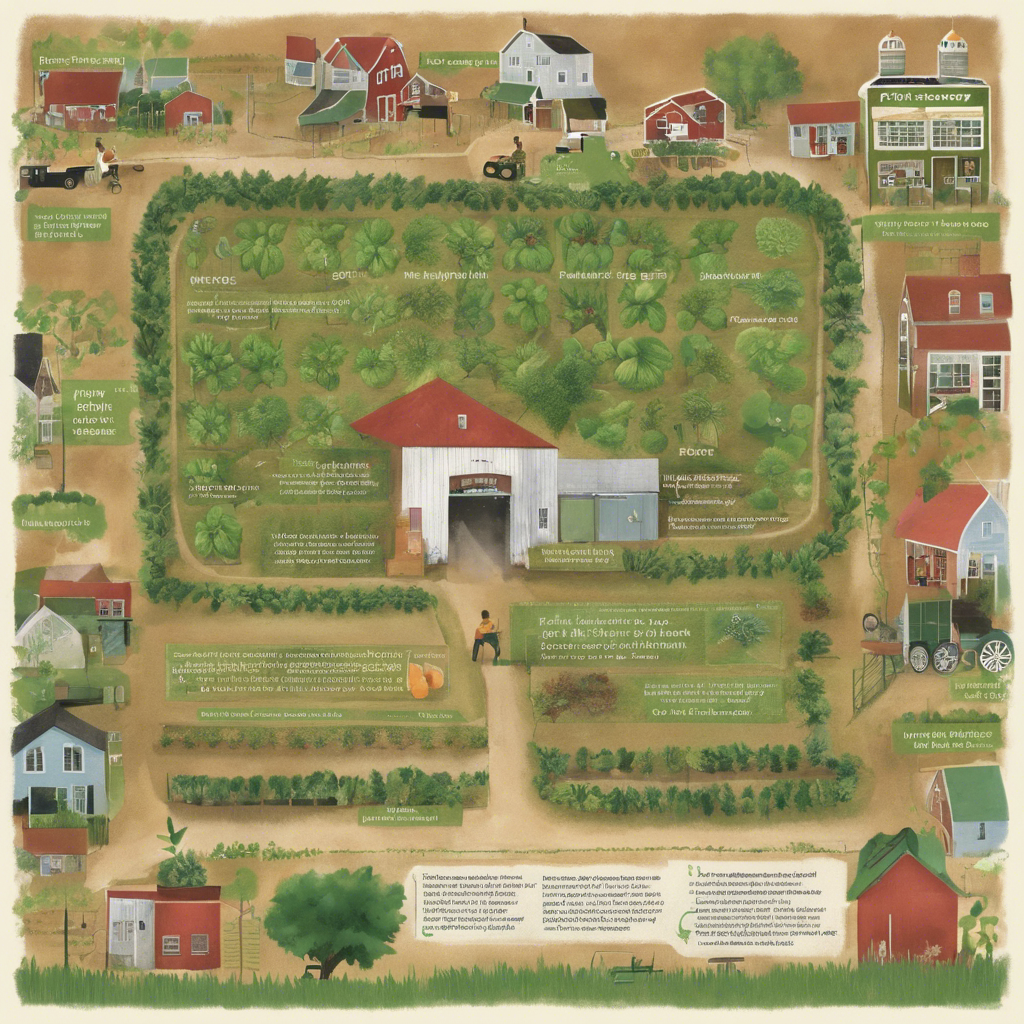Restorative Farms: Cultivating Hope and Opportunities in Urban Food Deserts

Grozilla: A Hydroponic Greenhouse Revolutionizing Urban Farming
In the heart of South Dallas, where fresh, healthy food is scarce and opportunities are limited, a nonprofit organization called Restorative Farms is sowing the seeds of change. With their innovative hydroponic greenhouse, named Grozilla, Restorative Farms is defying the limitations of traditional farming and bringing fresh produce to urban areas that have long been considered food deserts. This groundbreaking initiative not only addresses the lack of access to nutritious food but also aims to empower underserved communities by creating agricultural entrepreneurs. As the demand for sustainable and locally sourced food grows, Restorative Farms is leading the way in transforming urban landscapes and providing hope for a brighter future.
Nurturing Growth in the Shadows of the Texas Star
Restorative Farms’ Grozilla, a hydroponic greenhouse made from two shipping containers, stands as a beacon of possibility in the shadow of the Texas Star at Fair Park. Inside this remarkable structure, rows of leafy greens thrive without the need for soil. Head Grower Angel Giron explains that Grozilla utilizes a shallow water culture system, allowing for the cultivation of a variety of lettuce types. This innovative approach to farming not only maximizes space but also conserves water, making it an environmentally friendly solution for urban agriculture.
Cultivating Agricultural Entrepreneurs in Underserved Communities
Restorative Farms was founded by four visionaries, including Dr. Doric Earle, an SMU Professor of Practice. Their mission extends beyond providing fresh produce to underserved communities; they aim to create agricultural entrepreneurs who can build their own paths to success. Dr. Earle emphasizes the importance of training individuals in entrepreneurship, as relying on large corporations to provide employment opportunities is often unrealistic. By equipping residents of food deserts with the skills and resources needed to start their own agricultural ventures, Restorative Farms is fostering self-sufficiency and economic growth in these communities.
From Food Deserts to Resource Oases
The neighborhoods Restorative Farms serves are not only food deserts but also resource deserts. Director of Partnerships, Brad Boa, highlights the abundance of talent in these communities that often goes untapped due to limited resources. Restorative Farms aims to bridge this gap by providing the necessary tools and support for aspiring agricultural entrepreneurs. By doing so, they hope to empower individuals to take their skills and passion for farming to new heights, transforming food deserts into thriving resource oases.
A Magical Journey from Seed to Table
For many, the journey of food begins and ends at the grocery store. However, Restorative Farms seeks to reconnect individuals with the magic of growing their own food. Boa explains that witnessing the transformation of a small seed into a flourishing plant, and ultimately into a meal for a family, is truly magical. By engaging residents in the cultivation process, Restorative Farms not only promotes healthier eating habits but also fosters a deeper appreciation for the value of fresh, locally grown produce.
Scaling Up for Greater Impact
Restorative Farms has ambitious plans for expansion. This year, they aim to add a 5,700-square-foot greenhouse to their operations. This larger facility will serve as a catalyst for change, creating a “farm in a box” that can be replicated in other urban areas. By scaling up their operations, Restorative Farms hopes to inspire similar initiatives across the country, bringing fresh, healthy food and economic opportunities to communities that have long been overlooked.
Conclusion:
Restorative Farms’ Grozilla hydroponic greenhouse is revolutionizing urban farming by providing fresh produce and empowering underserved communities. Through their focus on entrepreneurship and resource empowerment, they are breaking the cycle of food deserts and creating opportunities for individuals to thrive. As Restorative Farms continues to expand and inspire others, the future of urban agriculture looks brighter than ever. By thinking inside the box, they are cultivating hope, nourishing communities, and sowing the seeds of change.

